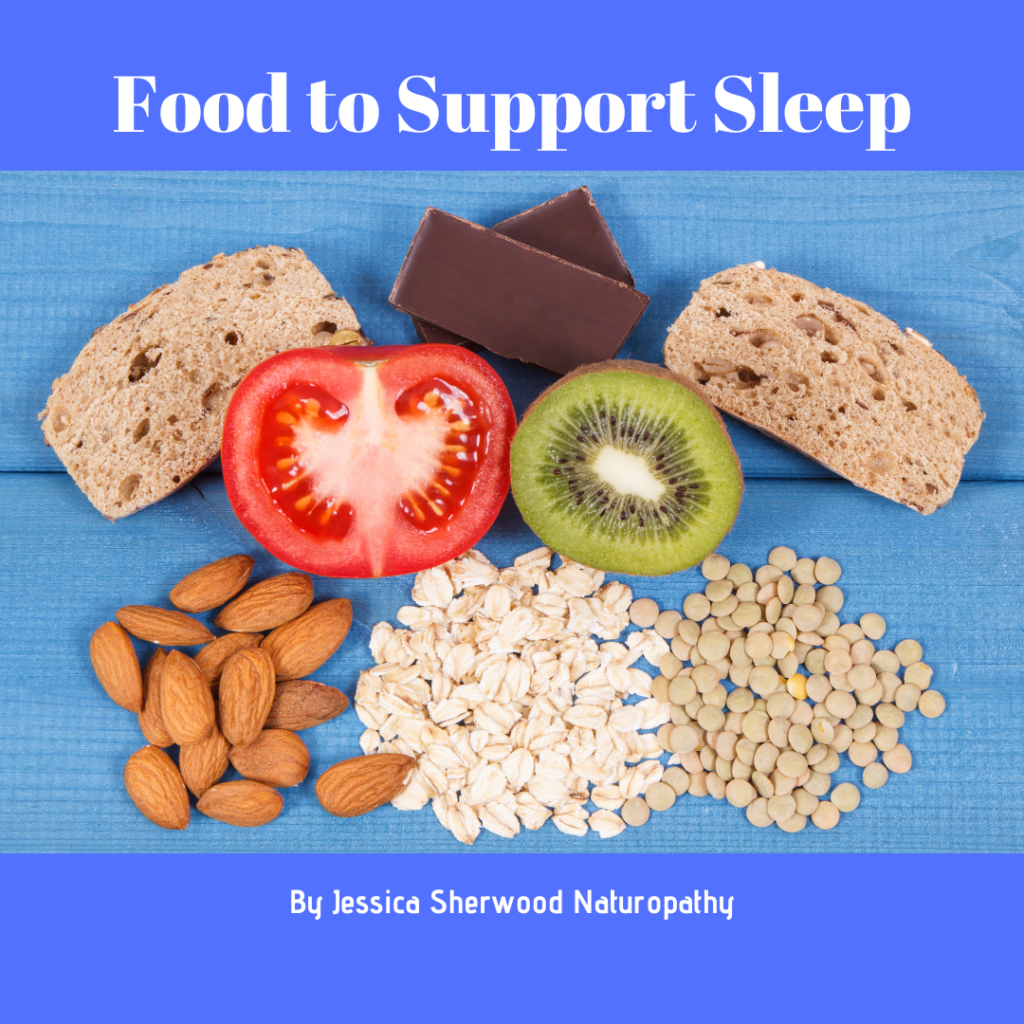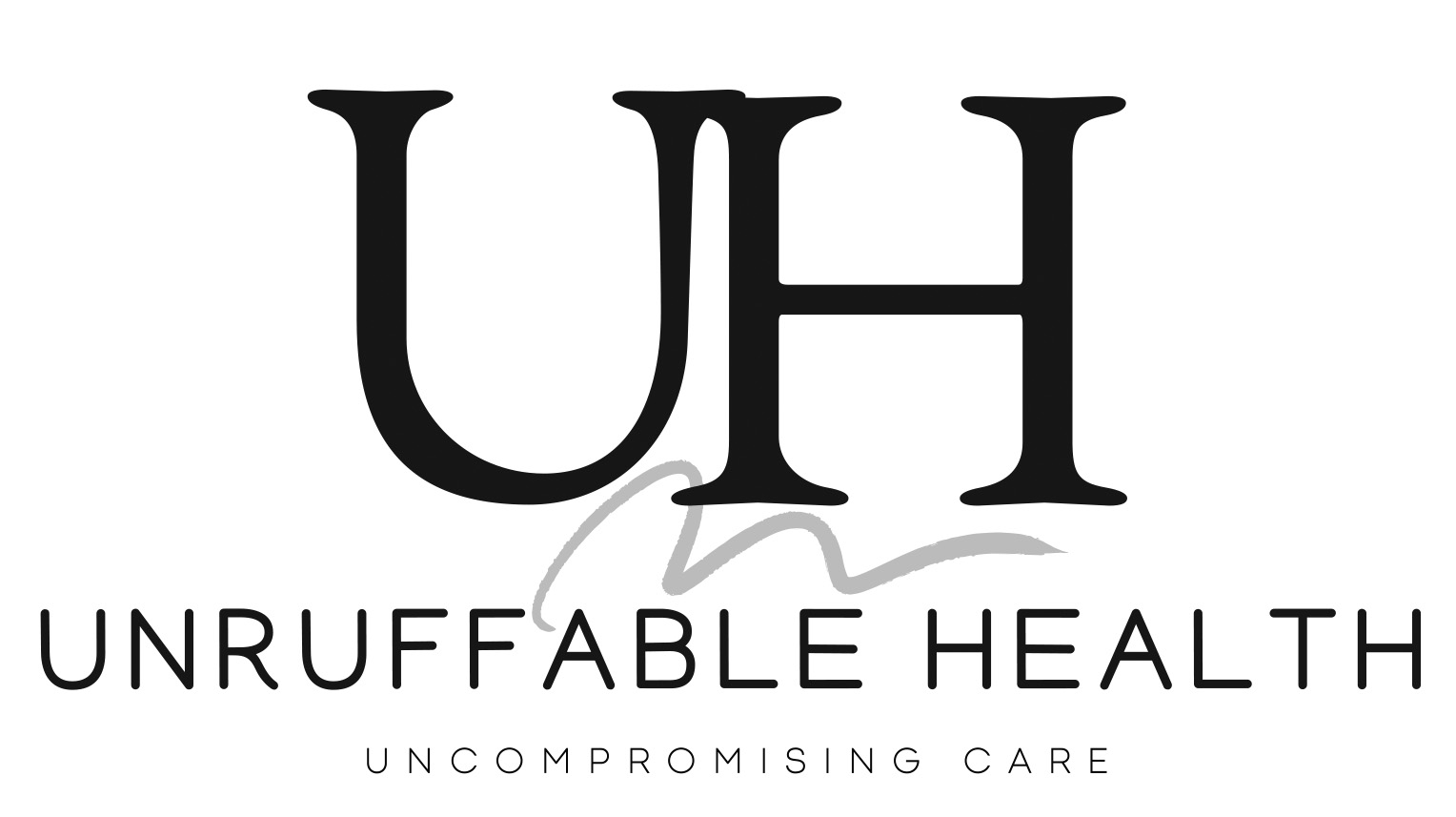Foods To Support Sleep
Today’s topic is foods to support sleep. If you know, anyone who is having trouble sleeping, or you may be having trouble sleeping yourself. Make sure to tag them in this blog and share the love.

Why is sleep so important?
Sleep! Sleep is important because some of us aren’t getting the right amount! Sleep disturbances are known as insomnia, latent sleep onset, and sleep maintenance problems. In terms of insomnia, at least 30% of the general population will have insomnia at some point, with about 10% of those people having chronic insomnia. That’s a lot of people! Insomnia is when you just can’t sleep, or you stay awake the whole night, or it takes you a long time to sleep, so there are different types of sleep disturbances to learn about.
If you find it hard to go to sleep, your sleep routine might look like this. You get in bed, you’re lying down, you’re tossing from side to side, and then once you finally get to sleep…. You wake up consistently throughout the night and you find it difficult to get back to sleep.
That sleep routine has just interrupted your circadian rhythm and has impacted negatively on your overall health.
Why should you care about sleep?
A poor-quality sleep will worsen chronic conditions! This includes depression, heart disease, high blood pressure, different types of cancer, you’re more likely to gain weight and be obese. And this is regardless of what you’re eating! So sleeping is as important as your diet and diet is important in getting sleep. So that’s why I thought I’d jump on today and have a little #TrainingThursday on foods to support sleep.
Foods to help support the sleep.
What does the research say? Because everyone’s so individual all the research papers I have read, The studies all do show improvement, but they’re not replicable. (Because everyone has different dietary needs different and different eating patterns. Some people find one thing works for them and other things work for others). There’s no single food that’s guaranteed to help you sleep. I thought I’d just put that one off the bat before we start. I’m not guaranteeing that if you eat all these foods, you’re going to have a good night sleep but I will bet that if you were incorportate these foods and have a look at the big picture, you’ll be able to improve your sleep. If you still can’t improve your sleep after that, then come have a consultation with me and we can have a look at that big picture and see what other areas we can support.
And then one other thing before I get started, I don’t like advising people to cut food groups out of their diet unless they are consulting with their doctor, naturopath, dietician, or nutritionist. Yeah. Doctors don’t get a lot of training around nutrition so probably your dietitian, nutritionist, or naturopath is going to be your best bet for being able to help you change your diet. Making sure that when you’re pulling out food groups, you’re actually keeping all those nutrients that those food groups included. It’s not just about your sleep. Food also impacts the rest of your body too! So you don’t want to be cutting things out or putting things in that is going to wreak havoc in your body.
Kiwi Fruit For Sleep
So we will jump straight into one of our favorite foods were like promote in New Zealand, and that is Kiwi Fruit! There has been some research on kiwi fruit and it has been shown to improve sleep. There was a study where people who ate two kiwi fruit one hour before bedtime were able to fall asleep faster and have a better sleep quality. The researchers were not too sure why this is, however, kiwi fruit has a lot of antioxidant properties, you also have some folate in there, folate deficiency can cause some sleep issues as well. Kiwi fruit has a high concentration of serotonin in it. Serotonin is going to relax your body which is how you get to sleep.
Bananas For Sleep
Are you going bananas for sleep? Bananas are another favourite food in New Zealand and are a food that supports sleep. Which after reading the research, it’s potentially the potassium and magnesium content that helps to support sleep. Magnesium helps your muscles relax and that can give you a better night’s sleep. So if you’re waking up with cramps or you are a little bit stiff and crampy when you’re sleeping, increasing your magnesium intake, through your food, may be a good choice.
Tart Cherry Juice For Sleep
Tart Cherry Juice has been used to support sleep. One research paper followed a study where people drank one cup of cherry juice per day and had better sleep and higher sleep efficiency. Tart cherry, that’s the sour cherries, they have melatonin in them, (the content level depends on the manufacturer on where they were grown), and that’s the hormone that helps regulate your circadian rhythm and promotes a night of healthy sleep. However, when using anything as a medication or supplement, e.g. when you’re having a cup at a time, I’d recommend having a look at interaction/ utilising your naturopath if you’re on any medication, especially antidepressants as they can interact and they can make your medication less effective. So, it’s always good to check with your health professional before you’re consuming large quantities of one thing that the food doesn’t interact with your medication.
Fish to Support Sleep
So the next food to support sleep is fatty fish! One study researched sleep quality, where over a period of months found that the people who ate salmon three times a week had an overall better sleep, as well as an improved daytime functioning. This is through providing your body with vitamin D and Omega 3 fatty acids, which are also involved in the body’s regulation of serotonin. This is more important during winter than in summer (although always important). Because during summer, you kind of out in the sun, you’re getting your vitamin D that way. However, in winter the levels of vitamin D, especially in New Zealand are quite low. You have a very small window to be able to get your vitamin D. A lot of us have suboptimal vitamin D and thus increasing your fatty fish can help support your vitamin D and Omega 3 fatty acids intake and thus support your sleep.
Nuts For Sleep
And then we’ve got nuts! You’ve got almonds, walnuts, and cashews! They’re all good foods for sleep and it’s because of all the minerals and essential minerals in them, like magnesium, and some of them also contain melatonin as well.
Foods that are high in magnesium are green leafy vegetables, pumpkin seeds, bananas, avocados, beans, and most and nuts and seeds. Magnesium helps your muscles relax and support an increased sleep state.
Herbal Tea For Sleep
Then you’ve also got your drinks, so your chamomile tea. If you’re finding it hard to wind down after the day’s activity, having a cup of chamomile tea can help calm the brain and help you put yourself to sleep sooner.
Yogurt For Sleep
Natural yogurt support sleep. Yogurt contains calcium which helps produce tryptophan, which is a sleep-promoting amino acid. So, just having your foods that are high in tryptophan/calcium is going to help promote sleep.
A body that is not nourished during the day, is not going to be in a restorative sleep at night.
The Big Picture For Sleep
It is also about the Big Picture! You can have these foods to help you sleep, but if you are not looking at the big picture, it may not do a lot. A good diet has been known to promote better sleep. However, there is not enough evidence because everyone’s so individual, that the amount of food you’re eating can change everyone’s sleep patterns. However, if you look at it on a case-by-case basis and make changes to your diet to support your health, it is always going to help support your sleep.
So, the Big Picture! Sleep is impacted by so many things, including your mental health, your light exposure, any physical issues you already have, and your diet! AND MORE!
Daily Habits to Support Sleep
Things that can help support your sleep are:
- Limiting your caffeine intake, it takes about six hours for you to metabolize your caffeine. So, if you are having a cup of coffee in the afternoon, it’s going to impact your sleep.
- Not drinking alcohol close to bedtime. This can throw off your sleep cycles and even if it does make you sleepy at first, you’re not getting that restful sleep.
- Have your meals at least four hours before bedtime. This helps to ensure you’ve finished the first stage of digesting, so you have less risk of acid reflux. And then that can help promote better sleep.
- Sleep hygiene or your sleeping environment. Make sure you have a darkened room when you sleep, as light and noise affect your sleep massively, and it can throw off your circadian rhythms make you wake up more often throughout the night.
- Sleep hygiene also includes the use of electronic devices in bed, or should I say not using those electronic devices. So I recommend having a screen-free zone in your bedroom.
- I often recommend reading a book, or having a bath, or even having a Little Teapot that you put your chamomile tea in (depending on what type of medications you’re on and how you react to different herbs), and then just sitting around a table playing some card games or listening to a podcast.
Do you have any questions? Don’t forget to post them in the comments <3
If you have any concerns or you’re having trouble sleeping and you’ve tried all the things to help yourself sleep (or you want to skip trying all the things). I would recommend that you begin with the consultation with me. You can do that under consultations and pick a time that suits you and get started on your health journey, and as always, share the love.
About the author:

Jessica is a degree qualified naturopath and medical herbalist at Jessica Sherwood Naturopathy. Jessica is currently based in Auckland but does online consultations as her main form of consultations, she also has a home clinic for those that are unable to use the internet or would prefer a face-to-face consultation.
Medical Disclaimer. The information on this site is not intended or implied to be a substitute for professional medical advice, diagnosis, or treatment. All content, including text, graphics, images, and information, contained on or available through this website is for general information purposes only.

